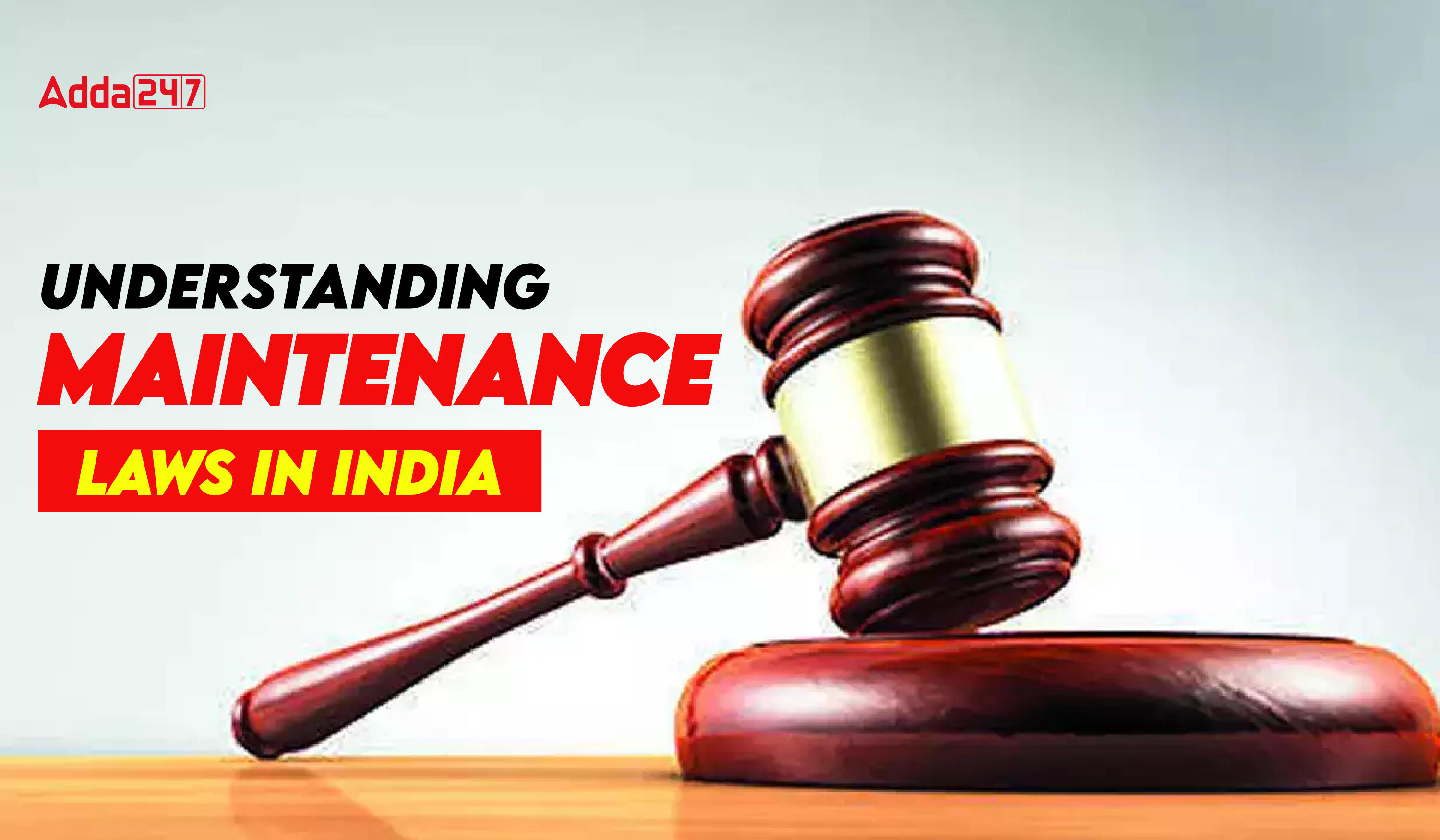Table of Contents
Maintenance is a crucial aspect of family law that ensures financial support is provided to dependent family members during or after marital separation. Various personal laws and secular statutes in India govern the provision of maintenance, reflecting the diverse cultural and religious practices in the country. These laws aim to prevent economic hardship and ensure a standard of living for spouses, particularly women, and children. The legal framework for maintenance encompasses temporary and permanent support, with courts considering multiple factors to determine the appropriate amount, thus fostering social justice and equality within the family structure.
Maintenance: Meaning
Maintenance is a financial support that a husband provides to his wife when she cannot support herself, either during their marriage or after they separate or divorce. This support ensures that she can cover basic needs like food, clothing, shelter, and medical expenses, helping her maintain a standard of living similar to what she had during the marriage. Maintenance can also be provided to children and parents who cannot support themselves.
Here, we delve into the primary legislative frameworks that address maintenance.
Hindu Laws
- Hindu Marriage Act, 1955: Under Section 24, either spouse can seek interim maintenance during ongoing legal proceedings if they lack sufficient income. Permanent maintenance and alimony are covered under Section 25, allowing either spouse to receive support after the dissolution of the marriage.
- Hindu Adoption and Maintenance Act, 1956: Section 18 entitles a Hindu wife to maintenance during her lifetime. This act also allows a wife to claim separate residence and maintenance if the husband is guilty of desertion, cruelty, or has another wife living. Section 19 extends maintenance rights to widowed daughters-in-law from their father-in-law under certain conditions.
Muslim Laws
- Muslim Women (Protection of Rights on Divorce) Act, 1986: A divorced Muslim woman is entitled to reasonable and fair provision and maintenance within the iddat period. If the husband fails, the Magistrate can order payment.
Christian Laws
- Indian Divorce Act, 1869: Sections 36 and 37 provide for interim and permanent alimony. A wife is entitled to maintenance even if she has an independent income.
Parsi Laws
- Parsi Marriage and Divorce Act, 1936: Sections 39 and 40 allow either spouse to claim maintenance and permanent alimony during and after legal proceedings.
Secular Laws
- Criminal Procedure Code, 1973 (CrPC): Section 125 CrPC mandates that a husband provide maintenance to his wife, children, and parents if they cannot maintain themselves. This section applies across all religions and provides a crucial safety net to prevent vagrancy and destitution.
- Special Marriage Act, 1954: Section 36 provides for interim maintenance, while Section 37 addresses permanent alimony, specifically for wives.
Key Judicial Interpretations
The Supreme Court and various High Courts have significantly shaped maintenance laws. In Bhuwan Mohan Singh v. Meena (2014), the Court emphasized that maintenance should ensure a life of dignity consistent with the wife’s previous lifestyle. Similarly, in Rajnesh v. Neha (2020), the Court established guidelines for determining maintenance, considering factors like the status of the parties, reasonable wants, and the respondent’s financial capability.
Maintenance: Interim and Permanent
Interim maintenance (pendente lite) is provided during the pendency of legal proceedings to address immediate needs. Permanent maintenance is awarded after the disposal of divorce or separation cases, ensuring long-term support.
Factors Influencing Maintenance Amount
Courts consider various factors while determining maintenance, including:
- The status and lifestyle of the parties
- Income and financial status of both spouses
- Needs and reasonable wants of the claimant
- Number of dependents
Conclusion
Maintenance laws in India aim to ensure that a spouse, particularly the wife, does not suffer financial hardship during or after the dissolution of marriage. These provisions, rooted in both personal and secular laws, seek to uphold social justice and equality. However, the legal landscape is continuously evolving through judicial interpretations to address contemporary issues and ensure fair treatment for all parties involved.
By understanding these legal frameworks and judicial precedents, individuals can better navigate their rights and obligations concerning maintenance, fostering a more equitable legal system.



 TSPSC Group 1 Question Paper 2024, Downl...
TSPSC Group 1 Question Paper 2024, Downl...
 TSPSC Group 1 Answer key 2024 Out, Downl...
TSPSC Group 1 Answer key 2024 Out, Downl...
 UPSC Prelims 2024 Question Paper, Downlo...
UPSC Prelims 2024 Question Paper, Downlo...




